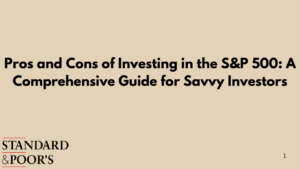When you think about buying a car, knowing the good and bad of dealership purchases is key. The pros and cons can really shape your car-buying journey. Dealerships offer a big selection, support from the car maker, and financing help. But, they might charge more and push you to buy fast.
For more on leasing, check out pros and cons of leasing. It helps you understand your options better.
Introduction to Dealership Purchases
Buying from a dealership has its perks, like warranty and maintenance help. But, you should also think about the downsides. These include less room to negotiate and often higher prices than private sales. By looking at both sides, you can choose what’s best for you and your wallet.
Key Takeaways
- Understanding the pros and cons of buying from a dealership is key to a smart choice.
- Dealerships have a wide range of cars and support from the maker.
- But, they might charge more and try to sell you fast.
- Looking into leasing can help you decide what’s right for you.
- A comparison table can help you weigh the pros and cons of dealership purchases.
- Dealership purchases come with benefits like warranty and maintenance services.
- It’s important to balance the good and bad of dealership purchases.
Understanding Dealerships
When you think about buying from a car dealer, it’s key to know what a dealership is. A dealership sells new or used cars, often with a deal from a big car maker. This deal gives dealership benefits like lots of car choices, warranties, and ways to pay.
There are many kinds of dealerships out there:
- New car dealerships, which sell only brand-new cars
- Used car dealerships, with a big selection of older cars
- Dealerships that focus on certain brands or models, giving you expert advice and a better buying experience
Knowing about these different dealerships can help you pick the best one. This way, you’ll have a better buying from car dealer experience and get the most out of dealership benefits.
The Pros of Buying from a Dealership
Many buyers think about the pros and cons of leasing versus buying from a dealership. Buying from a dealership has many benefits. You can find a wide selection of vehicles, making it easier to choose the right car. Plus, you get manufacturer-backed warranties, which protect you from future problems.
Some key benefits of buying from a dealership include:
- Access to a wide range of new and used vehicles
- Manufacturer-backed warranties for added protection
- Financing options available through the dealership
- Trade-in possibilities for those looking to upgrade their current vehicle
By using these dealership advantages, buyers get a better and more supportive buying experience.
Dealerships also offer great financing options. They have good relationships with lenders, making loans easier to get. Plus, many dealerships let you trade in your old car for a new one, giving you a fair value for it.
The Cons of Buying from a Dealership
Buying a vehicle from a dealership has its pros and cons. While dealerships offer many benefits, there are also downsides. One major issue is the higher cost compared to buying from a private seller. Dealerships have to cover costs like employee salaries and facility upkeep, which adds to the price.
Another problem is the pressure to buy. Some dealerships use aggressive sales tactics to get you to buy fast. This can make you feel uncomfortable and might lead to bad choices. Also, dealerships can’t always negotiate prices because of manufacturer rules.
- Higher prices compared to private sellers
- Potential pressure sales tactics
- Limited negotiation flexibility
Knowing these dealership disadvantages helps you protect yourself. Research, set a budget, and be ready to walk away if needed. This way, you can confidently make a smart choice.
Key Factors to Consider Before Buying
When you’re thinking about where to buy a car, there are important things to keep in mind. Knowing the good and bad of buying from a dealership can help you decide. Experts say to think about your budget, not just the car’s price but also insurance, fuel, and maintenance costs.
It’s also key to think about the car you want and how you’ll use it. For example, a big family might need a minivan or SUV. But a single person might prefer a smaller car. You can learn more about the pros and cons of dealership versus private sales on rollsauto.com.
Some important things to think about are:
- Your budget and ongoing costs
- The type of vehicle and its intended use
- Long-term costs, such as maintenance and repair
Thinking about these can help you find a car that’s right for you and your wallet. Dealership perks, like warranties and financing, are also worth considering.
By carefully considering these points, you can make a smart choice. You’ll find a car that suits your needs and budget.
Comparing Dealerships and Private Sellers
When looking to buy a used car, you have two choices: buying from a car dealer or a private seller. Each option has its own benefits and drawbacks. The best choice depends on what you value most.
Buying from a car dealer comes with many perks. These include warranties and ongoing support. Dealerships also offer a broader selection of cars. While their prices might be higher, the added security can be worth it.
Here are some key factors to consider when comparing dealerships and private sellers:
- Price: Private sellers might charge less, but dealerships offer more financing options and benefits.
- Vehicle selection: Dealerships have a wider range of cars, including certified pre-owned ones.
- Warranty and support: Dealership benefits give you peace of mind and protection against unexpected repairs.
In conclusion, buying from a car dealer has many advantages. These include dealership benefits and a wider selection of cars. By considering these points, you can make a choice that fits your needs and budget.
The Appeal of Certified Pre-Owned Vehicles
Certified pre-owned vehicles are a smart choice. They mix the dependability of a new car with the savings of a used one. They come with dealership advantages like warranties and inspections. When you purchase from a dealership, you get a vehicle that’s been checked and certified.
Some perks of certified pre-owned vehicles include:
- Extended warranties
- Thorough inspections
- Special financing options
In summary, certified pre-owned vehicles are a solid choice. They offer reliability and affordability. Plus, you get the dealership advantages of purchasing from a dealership.
Financing Through a Dealership
Many buyers choose to finance their vehicles through dealerships. This option is convenient because it combines the purchase and financing in one place. But, it’s key to know the loan’s terms, like the interest rate and repayment period. Dealerships might offer different financing plans, but beware of high interest rates or bad terms that could lead to dealership pitfalls.
Financing through a dealership can also have dealership perks. These include competitive interest rates and flexible repayment plans. To get the best deal, compare financing options from dealerships and outside lenders. Here are important things to think about:
- Interest rates: Compare rates from different lenders to find the best one.
- Repayment terms: Think about the loan’s length and monthly payments to see if they fit your budget.
- Fees: Watch out for extra fees like origination or late payment fees.
By carefully looking at these points and considering both the dealership perks and dealership pitfalls, buyers can make a smart choice. It’s also wise to read reviews and ask questions to ensure you’re working with a trustworthy lender.
Trade-Ins: A Convenient Option?
Trading in an old car when buying a new one is easy. It combines selling the old car and buying the new one in one spot. Dealerships offer trade-in deals, which can help you get a better car. But, it’s important to know the good and bad sides of trading in at a dealership.
Trading in has its perks like saving money upfront and avoiding the stress of selling privately. Yet, dealers might give you less for your car than you could get elsewhere. Knowing the trade-in rules of different dealers can help you make a smart choice.
Here are some key points to consider when trading in a vehicle at a dealership:
- Get your vehicle appraised by multiple dealerships to compare trade-in values
- Research the market value of your vehicle to negotiate a fair trade-in price
- Understand the dealership advantages and dealership disadvantages of trading in your vehicle
By thinking about these points, you can get the best deal on your new car.
After-Sales Services and Support
When purchasing from a dealership, it’s key to think about the dealership benefits. These include after-sales services and support. These help buyers feel secure, knowing they have maintenance plans and warranties.
Dealerships also handle any car problems, giving buyers extra security. This support is not always available when buying from a private seller.
Some important parts of after-sales services and support are:
- Maintenance plans to keep the car in top shape
- Warranties for repairs and replacements
- Dealerships are responsible for any car issues
Research on Japanese used cars shows dealerships are key to customer happiness. Good after-sales services and support help build trust and a good reputation.
After-sales services and support are a big plus for dealerships. They help lower the risk of buying a used car. They give buyers confidence in their choice. So, it’s important to think about these services when buying a used car.
After-sales services and support are vital in the car-buying process. By picking a dealership with good maintenance plans and warranties, buyers get peace of mind and protection for their car.
WORD>
Customer Experiences
When you think about buying from a dealership, hearing from others is key. Reviews and testimonials offer insights into the good and bad of dealership purchases. They help you understand what to expect and make a smart choice.
Dealerships offer perks like warranties and maintenance plans. These can be a big plus. Customer satisfaction is a top goal for dealerships. They work hard to make sure you’re happy with your buy.
Real-Life Buying Stories
Many people have had good experiences buying from dealerships. They like the dealership perks and the convenience of getting everything in one spot. Some even save money thanks to the warranty and maintenance plans.
But, there are downsides too. Prices might be higher than from private sellers. Weighing the pros and cons helps you choose what’s best for you.
Conclusion: Making an Informed Decision
When you’re looking to buy a vehicle, it’s key to think about the dealership advantages and dealership drawbacks. This helps you make a choice that fits your needs and budget. You should look at the variety of vehicles, financing options, and support after the sale.
Looking at dealership vs private seller pros and cons is important. Buyers should compare prices, warranties, and services from different dealerships. This way, you can find the best deal and avoid problems.
- Financing options and interest rates
- Vehicle selection and availability
- After-sales support and maintenance plans
By thinking about these points and doing your homework, you can make a smart choice. For more tips on making good buying decisions, check outpros and cons of buyingrefurbished. It shows how important it is to weigh the pros and cons in different buying situations.
Comparison Table: Dealership vs. Private Seller
To help you make an informed decision, here’s a concise comparison table. It highlights the key differences between buying a vehicle from a dealership and a private seller.
When weighing the pros and cons of buying from a dealership, the table below provides a clear overview. It compares the benefits of dealership benefits, such as selection, warranties, and financing options. It also looks at the drawbacks of higher prices and less negotiation flexibility.
| Feature | Dealership | Private Seller |
|---|---|---|
| Vehicle Selection | Wide variety of makes and models | Limited selection, often fewer options |
| Pricing | Generally higher prices | Potentially lower prices |
| Warranties | Manufacturer-backed warranties available | Limited or no warranties provided |
| Financing | Financing options and assistance available | Buyers may need to secure their own financing |
| Negotiation | Less flexibility for negotiation | More room for negotiation on price |
| Support and Accountability | Dealerships provide after-sales services and support | Private sellers have limited responsibility after the sale |
By reviewing this comparison, you can gain a clearer understanding. You’ll see the trade-offs between buying from a dealership or a private seller. This will help you make the best decision based on your specific needs and preferences.


